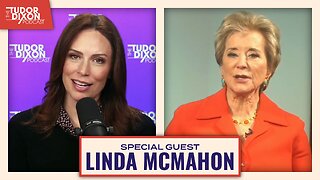Premium Only Content

Hitler's Speech on September 18, 1922
Background Leading Up to Hitler's Speech on September 18, 1922
Weimar Republic's Challenges: In 1922, the Weimar Republic was dealing with significant political, economic, and social turmoil. The aftermath of World War I, combined with the terms of the Treaty of Versailles, created widespread dissatisfaction among the German populace.
Economic Struggles: Germany was facing severe economic problems, including inflation and unemployment. The reparations demanded by the Treaty of Versailles exacerbated the country's financial woes, leading to increasing public discontent.
Rise of Political Extremism: The dire economic conditions and perceived injustices of the Treaty of Versailles fueled the rise of political extremism. The Nazi Party, under Adolf Hitler’s leadership, was growing in popularity by capitalizing on these grievances and presenting itself as the champion of German nationalism.
Hitler's Emerging Influence: By late 1922, Adolf Hitler had established himself as a prominent figure in the nationalist movement. His powerful oratory and charismatic leadership were attracting a growing number of followers to the Nazi cause.
Hitler's Speech on September 18, 1922
On September 18, 1922, Adolf Hitler delivered a speech aimed at galvanizing support for the Nazi Party and articulating his vision for Germany’s future. This speech was part of his ongoing effort to mobilize nationalist sentiment and to position the Nazi Party as the solution to Germany's crises.
Key Points of Hitler's Speech:
Condemnation of the Weimar Republic: Hitler began by sharply criticizing the Weimar government, accusing it of incompetence and betrayal. He argued that the government was incapable of addressing Germany's severe economic and social issues and had failed to protect the nation’s interests.
Critique of the Treaty of Versailles: A central theme of the speech was the denunciation of the Treaty of Versailles. Hitler condemned the treaty as a national humiliation, blaming it for Germany's economic difficulties and territorial losses. He argued that the treaty was imposed unfairly by the victorious Allied powers.
Economic Hardships: Hitler highlighted the economic hardships faced by ordinary Germans, particularly the issues of inflation and unemployment. He used these points to illustrate the failures of the Weimar government and to emphasize the need for a radical change in leadership.
Call for National Revival: Emphasizing the need for a national revival, Hitler called for the German people to unite and to reject the current political system. He promised that under Nazi leadership, Germany would regain its strength and dignity, and the injustices of the Treaty of Versailles would be overturned.
Promotion of Nazi Ideals: Hitler reiterated the core principles of the Nazi Party, including nationalism, the rejection of communism and socialism, and the belief in a strong, authoritarian government. He presented the Nazi Party as the only force capable of restoring Germany’s greatness.
Appeal to Youth and Veterans: Recognizing the importance of gaining broad support, Hitler specifically addressed young Germans and war veterans. He urged them to join the Nazi movement and to be part of the nation's revival, framing their involvement as a patriotic duty essential for Germany's future.
Vision for the Future: Hitler outlined his vision for Germany's future under Nazi rule, promising economic recovery, social stability, and national pride. He assured his audience that the Nazi Party had a clear plan to achieve these goals and to lead Germany to a prosperous and powerful future.
Analysis:
Hitler’s speech on September 18, 1922, was a strategic effort to build support for the Nazi Party by exploiting widespread dissatisfaction with the Weimar Republic and promoting a vision of national revival.
Exploitation of Economic Discontent: By focusing on the economic hardships caused by inflation and unemployment, Hitler aimed to resonate with the frustrations of ordinary Germans. He portrayed the Weimar government as responsible for these issues, thereby positioning the Nazi Party as the alternative.
Condemnation of Versailles: The consistent denouncement of the Treaty of Versailles was a strategic move to unite Germans around a common grievance. By framing the treaty as the root cause of Germany’s problems, Hitler sought to galvanize support for his nationalist agenda.
Call for National Unity: The call for national revival and unity was central to Hitler’s message. By urging Germans to reject the current political system and to rally behind the Nazi Party, he aimed to consolidate his base and to attract new followers.
Promotion of Nazi Ideals: By promoting the core principles of the Nazi Party, Hitler sought to distinguish his movement from other political factions and to present it as the only viable solution to Germany’s problems. The emphasis on nationalism and authoritarianism was intended to appeal to those disillusioned with the Weimar democracy.
Appeal to Key Demographics: Addressing youth and war veterans was a strategic move to gain the support of influential groups within society. By framing their involvement as essential for Germany’s future, Hitler aimed to mobilize a critical segment of the population.
Vision of a Strong Germany: The promise of a strong, prosperous Germany under Nazi rule was designed to inspire hope and to convince Germans that the party had the solutions to the country’s problems. This optimistic vision was a powerful tool for gaining and maintaining support.
Overall, Hitler’s speech on September 18, 1922, was a carefully crafted message designed to exploit the existing discontent in Germany, to criticize the Weimar government, and to promote the Nazi Party’s vision for a strong, unified, and prosperous nation. By addressing economic issues, condemning the Treaty of Versailles, and calling for national revival, Hitler sought to position the Nazi Party as the savior of Germany and to rally support for its cause.
-
 1:01:19
1:01:19
VINCE
3 hours ago'Big Tish James' Is About To FIND OUT! | Episode 23 (04/16/25)
177K147 -
 LIVE
LIVE
Benny Johnson
1 hour ago🚨 Trump DOJ Launches CRIMINAL PROSECUTION of NY Attorney General Letitia James for FRAUD | 'JAIL?'
8,924 watching -
 1:11:34
1:11:34
MYLUNCHBREAK CHANNEL PAGE
3 hours agoBeneath Chicago: Hidden Tunnels
7.21K6 -
 LIVE
LIVE
LFA TV
15 hours agoLFA TV - ALL DAY LIVE STREAM 4/16/25
4,141 watching -
 LIVE
LIVE
Side Scrollers Podcast
1 hour agoBlue Origin Launch WRECKED Online, PS6 Handheld, Home Alone Director Has TDS | Side Scrollers
262 watching -
 LIVE
LIVE
Grant Stinchfield
59 minutes agoWe Obtained the Documents the Fake News Refuses to Show You! Abrego Garcia is MS-13!
357 watching -
 LIVE
LIVE
The Shannon Joy Show
2 hours ago🔥🔥Artificial Ignorance - Elon Musk’s GROK Labels Dr. Mary Talley Bowden & Dr. Kat Lindley ‘GRIFTERS’ For Holding The Line On COVID Reckoning!🔥🔥
1,234 watching -
 18:53
18:53
Tudor Dixon
2 hours agoEXCLUSIVE: Linda McMahon on the Future of Education | The Tudor Dixon Podcast
138 -
 LIVE
LIVE
Caleb Hammer
1 hour agoI Wasn't Expecting This... Transition… | Financial Audit
147 watching -
 DVR
DVR
Bannons War Room
1 month agoWarRoom Live
12.2M3.1K